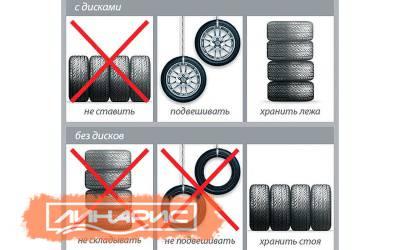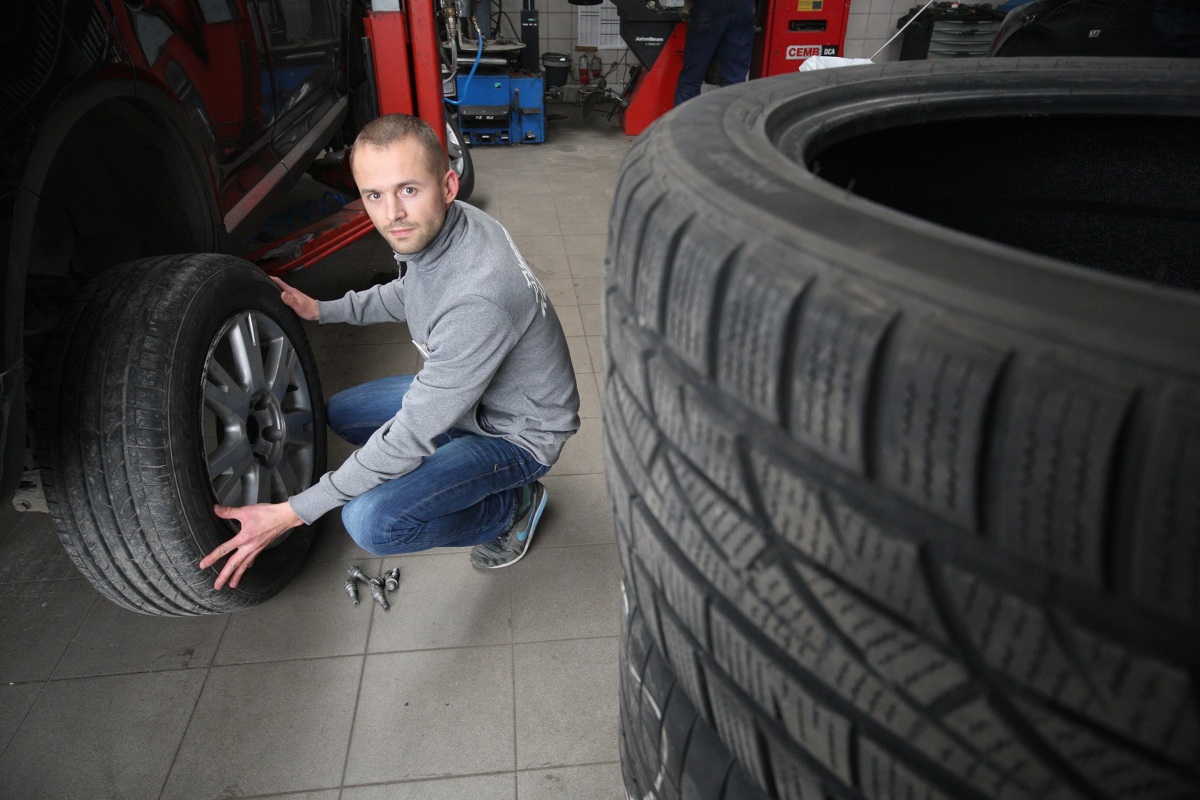
Tires. Principles of proper storage
 Tires do not age in the same way as foodstuffs - they do not lose their properties under appropriate storage conditions. A tire that has not been used for several years is just as good as tires that were released yesterday or a few months ago.
Tires do not age in the same way as foodstuffs - they do not lose their properties under appropriate storage conditions. A tire that has not been used for several years is just as good as tires that were released yesterday or a few months ago.
One of the most important factors in slowing down tire wear is proper tire pressure. According to Moto Data, 58% of drivers rarely check their tire pressure. Many people are unaware of the benefits of regularly checking this parameter, which has a major impact on driving safety and economy. Insufficient pressure causes excessive wheel overload, overheating of the tires and loss of optimal vehicle grip. In addition, the pressure, reduced by 0,5 bar compared to the values specified by the manufacturer, increases the braking distance by 4 meters and increases the fatigue noise. The habit of checking the pressure every time you fill up your car will significantly reduce fuel consumption and therefore lead to savings.
The editors recommend:
Fine up to PLN 500 for ignoring the new mark
Map of speed cameras in Poland. Location list
Should I be afraid of cars with high mileage?
– Tires do not age at all when properly stored. Physical and chemical changes in tires occur mainly during operation and are caused by heating during movement, stress due to pressure, deformations and other factors that do not occur during storage. The pressure control lasts only a few minutes and reduces fuel and tire consumption while improving driving safety,” says Piotr Sarnecki, CEO of the Polish Tire Industry Association (PZPO). “Dangerous damage to the inner layers of a tire caused by driving at too low a pressure is not visible to the naked eye,” he adds.
Tire storage rules
New tires can be stored for up to several years - under the right conditions, the tires will retain their factory quality. The condition of the tires and the way they are stored directly affects the safety of drivers and the life of the tires. Do not store tires anywhere and anyhow - these are the basic rules:
1. Mark the location of each removable tire on the vehicle. The distribution of tires is not accidental - their position on the axles must be noted during dismantling. After storage, they should be rotated between axles to balance tread wear.
2. Tires prepared for storage are clean tires. Any residual oils, fuels or chemicals are detrimental to tires - so it's especially important to clean them after the season.
3. Only dry tires can be stored. After washing tires, you must wait until the tires are completely dry or dry them before putting them in a bag or leaving them locked in the garage. Moisture can penetrate micro-damages in the rubber all the way to the steel belt, causing it to corrode.
4. During storage, the tire pressure on the rims should be the same as when in use - information on the correct value can be found in the vehicle owner's manual or on a sticker at the bottom of the B-pillar.
5. UV radiation is not good for tires - the garden is not a good warehouse. Tires should not be stored in direct sunlight or strong artificial light with high UV intensity. It damages the rubber, causing small but visible cracks. With prolonged use, water or salt can penetrate the tires, causing internal corrosion.
See also: How to care for the battery?
6. Ozone is the enemy of tires - the gas quickly destroys the rubber compound of the tire and causes cracks. Tires should not be stored in rooms with working transformers, rectifiers or generators. It is best to store them in a covered, dry and ventilated room without drafts, with an appropriate temperature of 10 to 30°C.
7. Storing tires near heat sources can lead to irreversible changes in the molecular structure of rubber - all kinds of heating installations, furnaces and electrical appliances should not be located in the immediate vicinity of the tires.
8. The floor of the room where the tires are stored is important. Washed tires can become dirty again if they get oil, grease or other chemicals on them - the rubber structure of a wheel stored in such conditions can be damaged.
